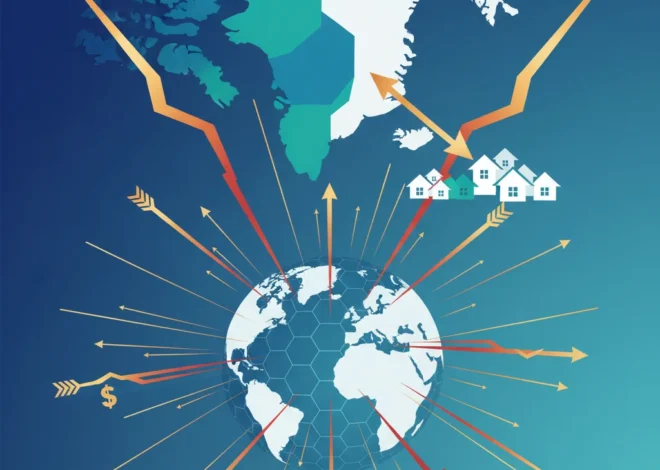
Beyond the Headlines: Decoding the Economic Stakes of the Gaza Peace Summit
In a move capturing the world’s attention, a high-stakes “peace summit” is set to convene in Egypt, bringing an unlikely assembly of global leaders to the table. As reported by the Financial Times, UK Labour leader Keir Starmer and French President Emmanuel Macron are expected to join former US President Donald Trump in a crucial meeting aimed at de-escalating the devastating conflict in Gaza. The summit’s timing is critical, coinciding with delicate negotiations for Hamas to release Israeli hostages in exchange for Palestinian prisoners.
While the immediate focus is rightly on the human cost and the potential for a ceasefire, seasoned investors, finance professionals, and business leaders understand that the ripples from this event will extend far beyond the Levant. Geopolitical tremors in the Middle East have historically been a powerful catalyst for volatility across the global economy. This summit, therefore, is not just a diplomatic maneuver; it is a critical inflection point for the stock market, energy prices, and the intricate web of global supply chains. Understanding the potential outcomes and their financial implications is essential for navigating the complex investment landscape ahead.
The Geopolitical Chessboard: More Than Just a Meeting
The gathering in Egypt is significant not only for its goals but also for its participants. The presence of established leaders like Macron alongside a potential future (and former) US president like Trump, and a UK prime-minister-in-waiting like Starmer, creates a complex dynamic. Each leader brings a different agenda, a unique set of domestic pressures, and a distinct vision for the region’s future. The primary objective is to broker a lasting peace, or at least a sustainable ceasefire, but the underlying currents involve securing regional stability, managing energy flows, and reasserting influence in a multipolar world.
The backdrop of the hostage-prisoner exchange adds a layer of urgency and fragility to the proceedings. A successful exchange could build momentum for the summit’s broader ambitions, while a failure could derail talks before they even begin. For the global financial community, this uncertainty is a variable that must be priced into risk models. The stability of the entire Middle East, a region that serves as a lynchpin for the global economy, hangs in the balance.
The Economic Shockwaves: Why Global Finance is Watching Closely
Any significant event in the Middle East inevitably sends ripples through the world’s financial markets. The potential for either escalation or de-escalation from this summit presents a series of risks and opportunities that investors must carefully consider.
1. Energy Markets and Inflationary Pressures
The Middle East is home to a significant portion of the world’s proven oil reserves. The conflict has already introduced a “geopolitical risk premium” on crude oil prices. An escalation could threaten key shipping lanes like the Strait of Hormuz, through which a vast amount of global oil supply travels. According to the U.S. Energy Information Administration, the Strait of Hormuz saw about 21 million barrels of oil pass through it daily in 2023, representing about 21% of global petroleum liquids consumption. Any disruption could cause a severe price spike, fueling global inflation and forcing central banks to reconsider their monetary policies. Conversely, a credible peace plan emerging from the summit could see this premium evaporate, providing relief to consumers and businesses worldwide.
2. Supply Chain and Global Trading
The conflict has already caused major disruptions in the Red Sea, a critical artery for global trade connecting Asia and Europe via the Suez Canal. Houthi attacks on commercial vessels have forced many shipping giants to reroute around the Cape of Good Hope, adding weeks to transit times and millions in costs. This directly impacts inventory management, manufacturing schedules, and consumer prices. The summit’s outcome will be a key indicator of whether these disruptions will ease or intensify, a crucial factor for any business involved in international trading and logistics.
3. Market Sentiment and Volatility
Global equity markets abhor uncertainty. The Gaza conflict has been a persistent source of negative sentiment, contributing to market volatility. High-frequency trading algorithms are programmed to react instantly to headlines coming


